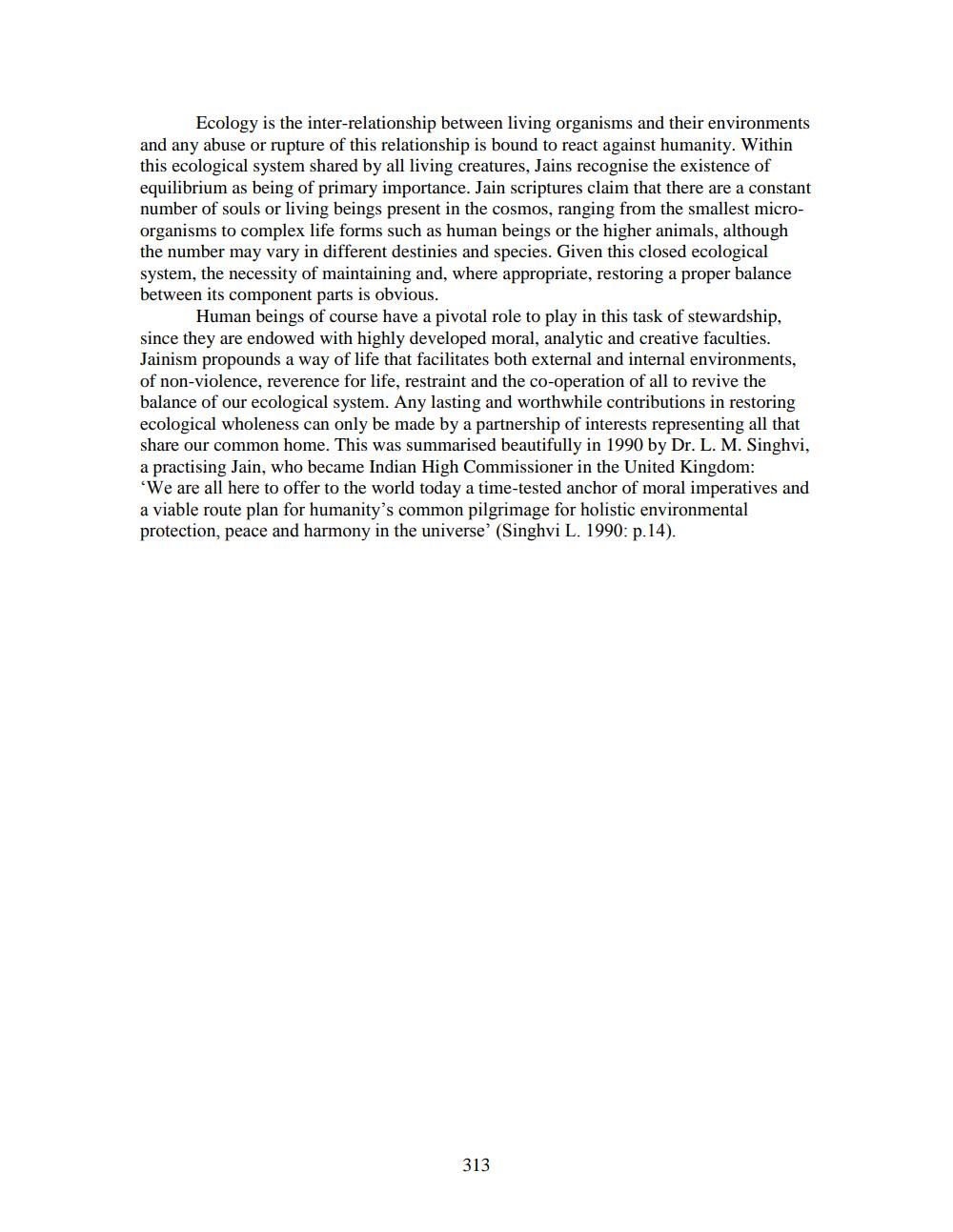________________
Ecology is the inter-relationship between living organisms and their environments and any abuse or rupture of this relationship is bound to react against humanity. Within this ecological system shared by all living creatures, Jains recognise the existence of equilibrium as being of primary importance. Jain scriptures claim that there are a constant number of souls or living beings present in the cosmos, ranging from the smallest microorganisms to complex life forms such as human beings or the higher animals, although the number may vary in different destinies and species. Given this closed ecological system, the necessity of maintaining and, where appropriate, restoring a proper balance between its component parts is obvious.
Human beings of course have a pivotal role to play in this task of stewardship, since they are endowed with highly developed moral, analytic and creative faculties. Jainism propounds a way of life that facilitates both external and internal environments, of non-violence, reverence for life, restraint and the co-operation of all to revive the balance of our ecological system. Any lasting and worthwhile contributions in restoring ecological wholeness can only be made by a partnership of interests representing all that share our common home. This was summarised beautifully in 1990 by Dr. L. M. Singhvi. a practising Jain, who became Indian High Commissioner in the United Kingdom: We are all here to offer to the world today a time-tested anchor of moral imperatives and a viable route plan for humanity's common pilgrimage for holistic environmental protection, peace and harmony in the universe' (Singhvi L. 1990: p.14).
313




